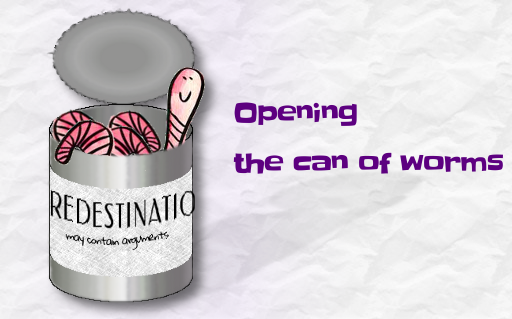What’s the Christian view on homosexuality? What’s the Christian view on female leadership? What’s the Christian view on war?

Texture from Premium Pixels, where it comes with a very permissive free license
Sometimes, people ask these questions with a genuine desire to understand the worldview of their Christian friends. Sometimes, people ask these questions to be able to judge and label specific groups as homophobic/antiquated/liberal/hippies. People tend to be far too ready to answer these questions.
For the more controversial cases, some will call it the “Biblical view” – cunningly suggesting that those who do not hold the same view are automatically Bible-shunning heretics. In doing so, they are using the Bible to shut down a conversation, where it could be use to spark one. Others will suggest that the issue at hand is “secondary doctrine”. But calling something secondary is making a statement: you wouldn’t expect a Catholic to think of transubstantiation as secondary doctrine.
The three questions that I have started this post with have different levels of dissension within the mainstream Christian church. Same-sex marriage has been welcomed by Quakers and others, but adamantly fought against by some Evangelicals. Anglicans are a divided house when it comes to female episcopate. Quakers would see pacifism as part of their identity, but C.S. Lewis points out there is such a thing as just war. I would never dream to seriously suggest that Quakers, Evangelicals, Anglicans, C.S. Lewis, or Catholics aren’t Christians.
Does that mean that, in a post-modern way, there is no ultimate truth? Certainly not! Jesus says of himself he is the truth. Singular truth. There is no doubting, then, that there is one single truth. Some will say the Bible, as originally given, is the ultimate authority on matters of behaviour. But that is assuming that our access to the “original Bible” is unbiased and, somehow, superior to others’. Isn’t that both a display of pride and of judgement of others?
What then? Are we to shirk away from making any absolute statement? By no means! If you feel it is the case, do say that women should or should not be in leadership in the church. Do say that the Bible is against homosexuality, or is pointing towards acceptance of homosexuality. After all, what you believe may well be the truth! But in all cases, be prepared to listen to the other point of view; and in no case declare a view to make its holder non-Christian. Exclusion from the body of Christians is Biblical, but it always happens in conversation with the potential non-Christian.
What is, then, the Christian view? It is a submissive worldview that sees Christ as King and Saviour. I am unwilling to restrict the Christian worldview by elaborating further on this. Yes, the Westboro Baptist Church share that view (I think). As do Christadelphians, Unitarians, Mormons, Anglicans, Catholics, Evangelicals. This minimal approach might not allow us to dissociate ourselves from those who seem to behave in a way that seems so unloving to us (although it does not mean we should seek to worship with them – other criteria come into play there); and so it might not be quite as comfortable. But it will, I’m sure, bring us closer to the truth.

